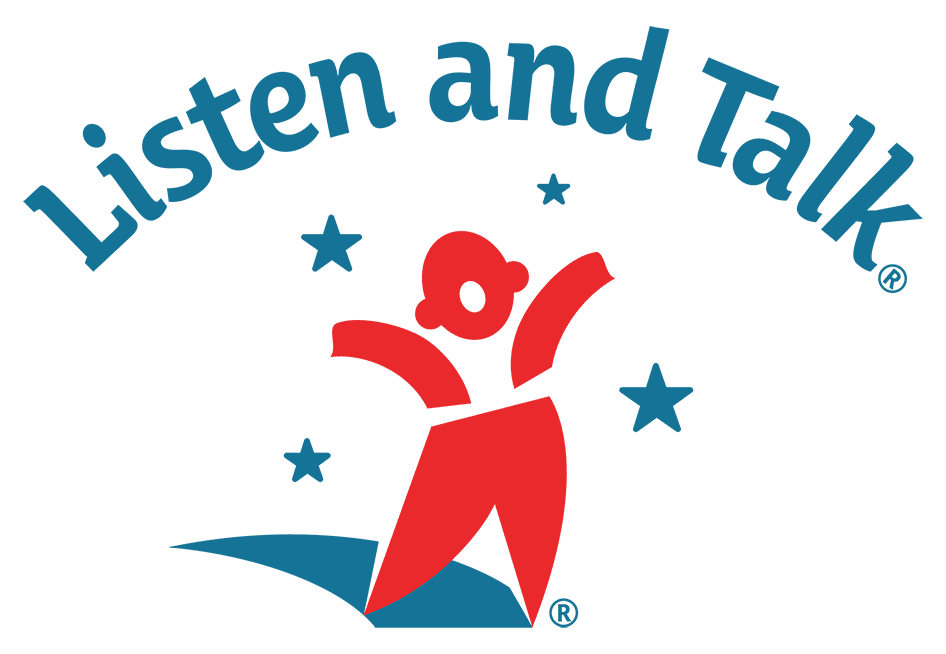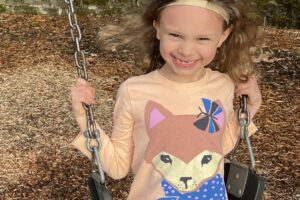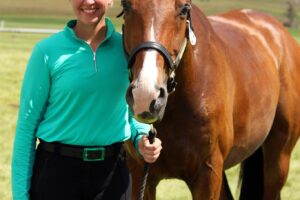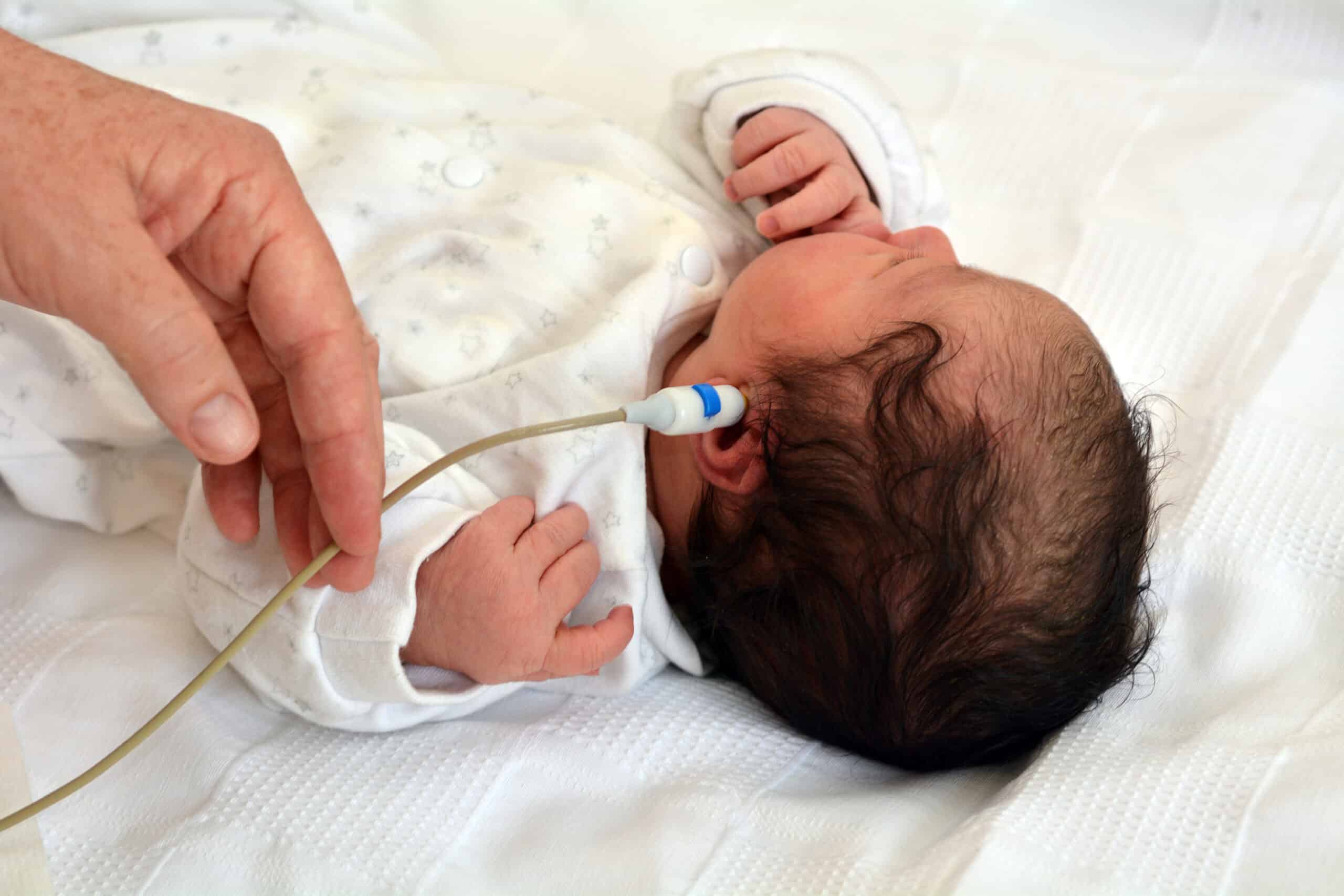
What to expect at a Newborn Hearing Screening.
When I tell people that I work with babies and toddlers who have hearing loss, people often ask me, “But how do you even know they have a hearing loss that young?”
I have been asked questions like that so frequently, it occurred to me that many people might not know about universal newborn hearing screening programs. Here are some questions and answers that will help explain what it is, and how it works.
When did universal newborn hearing screenings begin?
According to the National Institute of Health in 1993, they recommended that all newborns receive screening for hearing loss before they leave the hospital. In 1999, Congress passed an act which provided funding to states to help coordinate programs. Today, it is estimated that 95% of infants in the United States are screened for hearing loss shortly after birth.
How is a newborn’s hearing “tested”?
According to the National Institute on Deafness and Childhood Communication Disorders, two different tests are used:
- Otoacoustic emissions: a soft earbud is put in the baby’s ears. It plays a sound and measures an “echo” response that is present in ears with intact hearing.
- Auditory Brain Stem Response (also called ABR): the baby wears small earphones. Small electrodes are placed on his/her head, but once the test is finished, they come off painlessly. An ABR measures the auditory nerves’ response to sounds.
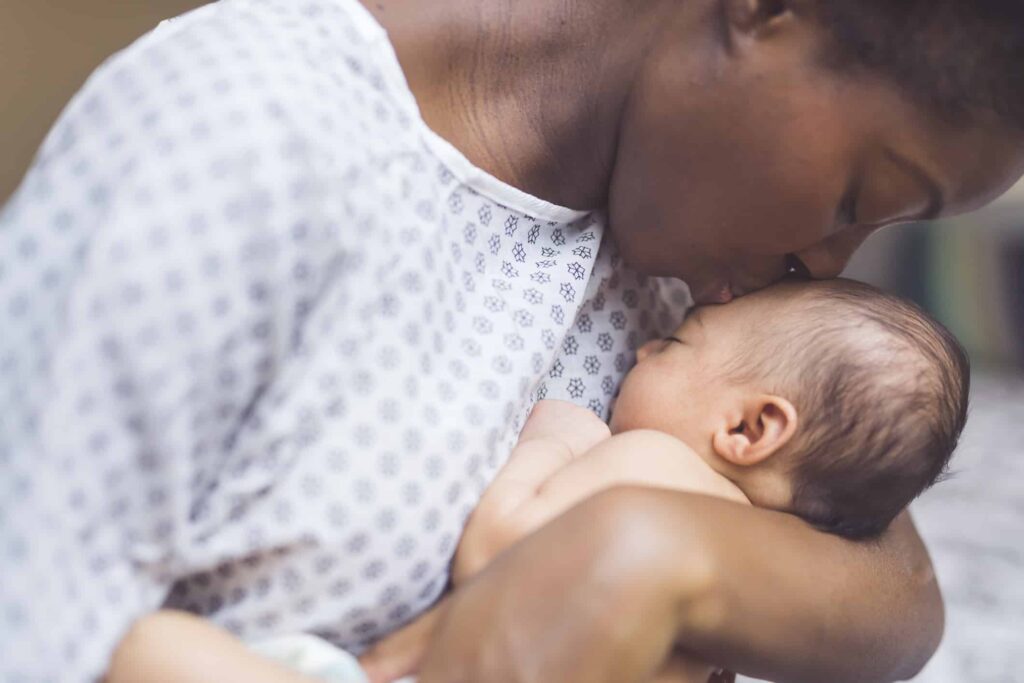
What happens if the baby doesn’t pass the screening?
Karin Neidt, the director of the Washington State Early Hearing, Detection, Diagnosis, and Intervention program, reported that hearing screening results are typically communicated to families both verbally and in writing. This brochure is also shared with families. If a child does not pass more than one newborn hearing screening, he or she should receive a comprehensive evaluation with a pediatric audiologist.
What if the baby is not born at the hospital?
To use Washington state as an example, there are approximately 45 midwives/free-standing birth centers that provide newborn hearing screenings for infants. If you are considering giving birth out-of-hospital, ask your healthcare provider if they offer a hearing screening.
Takeaways:
- All states have Early Hearing Detection and Intervention (EHDI) programs. Find out more about your state here
- It is recommended that all babies have their hearing screened by the time they are one month old
- A baby who is “referred” during one or more screening will require additional testing to determine if he/she may have a hearing loss. The follow-up testing should be done by a pediatric audiologist before the baby is 3 months old. Click here to find a list of pediatric audiologists in your area
If you have any concerns about your child’s hearing, ask your pediatrician for a hearing screening as soon as possible. It is critical that hearing loss is identified very early in order for the child to achieve the best communication-development outcomes in the long term.
Resources:
Your Baby’s Hearing Screening
https://www.nidcd.nih.gov/health/your-babys-hearing-screening
